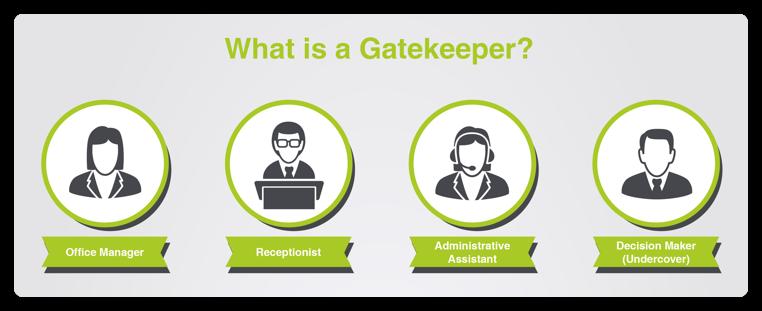There are many industries where gatekeepers are necessary. Gatekeepers are people or policies acting as a go-between, controlling access from one point to another. They may refuse, control or delay access to services. Alternatively, they may also be used to oversee how work is being done and whether it meets certain standards.
The healthcare industry is one area in which gatekeepers are commonly used. But what exactly do they do? And in what areas of the industry do they work? In this article, we define the term gatekeeper, their roles in health insurance and long-term care, and some of their criticisms.
Key Takeaways
What Is a Gatekeeper?
There are two definitions of the term gatekeeper. One is used to describe the role of people in the health insurance sector, while the other refers to long-term care plans.
When used in relation to health insurance, the term gatekeeper describes the person in charge of a patient’s treatment. Anyone who receives health insurance coverage in the form of a managed care plan, specifically a health maintenance organization (HMO) plan, is assigned a gatekeeper or allowed to choose one. In some cases, the insured party is instructed to choose a primary care physician from a list, and that doctor becomes the patient’s gatekeeper.
A gatekeeper’s duty is primarily to manage a patient’s treatment. This means that the gatekeeper is in charge of authorizing the patient’s referrals, hospitalizations, and lab studies. When a patient falls ill or needs to be referred to a specialist, the patient contacts the gatekeeper, who in turn refers the patient to doctors and specialists within the plan network.
Gatekeepers in Healthcare
The concept of a primary care physician as a gatekeeper to specialists and other medical resources—considered to be a managed care innovation in the United States—has become ubiquitous in recent years. Its introduction has been accompanied by government-sponsored research in the United Kingdom into primary care referrals. This research could inform how the U.K.’s National Health Service shapes the gatekeeping function of general practitioners.

Many consider gatekeeping to be an effective way to contain costs by reducing unnecessary medical care interventions. Primary-level healthcare and affiliated tests and diagnoses are, on average, less expensive than secondary and specialty care services. Primary care physicians are considered to be better informed than their patients when it comes to knowing where and how to seek specialist care. This knowledge benefits the patient care path by making a more efficient search for an adequate and qualitative secondary care provider.
A 2015 report compared Austria, which lacks gatekeeping, and the United States, where gatekeeping is practiced. It found that Austrian patients more frequently sought help from specialists compared with U.S. patients. The study revealed that the lack of a system for governing primary to secondary and tertiary care referrals led to overutilization of secondary and tertiary care facilities.
On the other hand, Austrian patients consistently reported a high satisfaction rate with their healthcare system. The country has also increased its hospital capacity to accommodate the high influx of primary care needs.
Gatekeepers Aren’t Always Welcome
A study of the healthcare system in the Netherlands reported that primary care physicians felt as though they were relegated to administrators when placed in the position of gatekeeper.
This presented an issue because the average age of patients seen by primary care physicians was increasing, while elderly and aged patients are more likely to present a plurality of medical ailments and require more robust medical care.
In a traditional gatekeeping mechanism, an elderly individual would be sent to several specialists, which is tiring, time-consuming, and a potentially fragmented approach to their healthcare. An ideal gatekeeping system would embrace innovative solutions, multiple competence centers, clinics with multiple care options on-site, and ambulatory care improvements.
In the British healthcare system, general practitioners—who are comparable to primary care physicians in the United States—are compensated for their services via capitation rates and/or fee-for-service, which creates competition in the market for patients. It also creates a situation where, if a general practitioner hands over patients to a specialist too quickly, they could lose part of their funding.
On the other hand, if a family doctor is too careful or too reserved with forwarding patients to specialists, the patient may feel that they have been denied access to secondary healthcare.
Primary care physicians feel as though being a gatekeeper reduces them to administrators of health insurance policies, according to a Dutch study.
Long-Term Care Insurance
When it comes to long-term care, gatekeepers are not people. Instead, they are the requirements that must be met before an individual can receive any payouts from their long-term care insurance plan.
Most long-term care insurance policies require long-term care to be medically necessary for sickness or injury. As a result, many companies conduct their own evaluations of whether this standard is met, and they sometimes overrule patients’ doctors. Some policies require the patient to be unable to complete a certain number of daily activities on their own, such as bathing, walking, dressing, and eating.
FAQs
What Is an Example of Gatekeeping?
Primary care doctors and long-term insurance companies are two different examples of gatekeeping. In both cases, they function in an administrative capacity, limiting a patient’s ability to seek specialist care independently.
Why Is Gatekeeping in Healthcare Important?
By potentially reducing the number of unnecessary visits to specialists, gatekeeping can limit spending by both the patient and the hospital.
The Bottom Line
There are both positive and negative aspects to gatekeeping, for both the healthcare system and individual patients. It is clear that improvements must be made to enable flexible and easy communication between the care providers of distinct entry points. A family doctor should be able to quickly consult a specialist to confirm or eliminate clinical concerns, and a specialist should be able to pass detailed instructions to the doctor for potential follow-ups.




